TEDxUTP 2017: The MoonshotI was invited by TEDxUTP to speak their conference this year! It was themed 'The Moonshot' held on 9th September 2017 in Universiti Teknologi PETRONAS (UTP), all the way up in Bandar Seri Iskandar in Perak. There was a range of inspiring speakers from entrepreneurs and teachers to poets and social activists. I had a wonderful time on stage talking about "How to Unleash Youth Power". View my talk with the speech text below: How to Unleash Youth PowerAs a millennial, we are living in an extraordinary time of challenges and opportunities. Global issues like climate change and conflict are threatening our very existence. And yet, I’ve been told my generation are narcissistic, selfish and self-entitled. Pundits are propagating this myth of “youth apathy.” They say young people don’t care by conveniently pointing the global decline in youth vote. In the United States, only half of the young eligible electorate voted in the last presidential election, resulting in presidency of Donald Trump. In the Brexit referendum, close to half of young voters chose not to vote. In our own backyard, critics point to the 1.7 million unregistered youth voters in Malaysia. This picture comes in direct contrast with the brave youth fighting for the soul of their beloved nations. I am reminded of images of young people in Middle East going against their authoritarian regimes during the Arab Spring. I’m inspired by the Umbrella Revolution in Hong Kong where university students as young as yourselves demanding the authorities for greater democracy. I believe to stereotype millennials as apathetic is blatantly irresponsible. I intend to spend the next 10 minutes talking about youth power and how we can unleash it as a force for good. Everyone -- young and old alike -- can and must activate the young souls around us.
Millennials approach democracy and politics differently than our parents. It’s true we may shy away from voting. Study after study have consistently shown young people are less likely to vote than older people. Experts say this is across the board with nations like Germany, Israel and Singapore. It’s not because we don’t care; we do care. As a more discerning generation, we tend to be more sceptical of traditional institutions such government, bureaucracy and politicians. Young people are pessimistic as to what difference can they make in our lives. This feeling can be captured in a cheeky quote I read, “If elections could change anything, they would be illegal.” People feel the system is rigged and that the deck is stacked against you. While older people turned to the ballot box, we have turned to informal participation in the form of volunteerism and activism. The good news is, according to the Commonwealth’s Global Youth Development Index, young people are volunteering and organising campaigns at a scale never been seen before. For example, the Global Citizen movement which has mobilised more than 7 million young people to take 11 million actions in pressuring world leaders to end poverty by 2030. I’m sure many of us, if not most of us here have volunteered for a cause. The bad news is the creeping sense of despair felt by many of us. This is when pessimism turns into cynicism where nothing is ever right. In Malaysia, The Asian Foundation in a 2012 survey found only 39% of youth say they can make a difference in solving their community problems. This means an overwhelming majority 61% of young Malaysians feel helpless. At this juncture, I think it’s only appropriate that I make a confession. I was one of them. One of the 61% of powerless young Malaysians. I always a timid kid growing up. I was afraid of taking risks and venturing out of my comfort zone. I was an average student. I did not excel in extracurricular activities and sports. I always felt like an underdog. Until something happened. A friend saw the power in me that I couldn’t see in myself. He nominated me for the university student council. There couldn’t have been a worse candidate than myself. I offered him three excuses I couldn’t do it. First, I had zero leadership experience. I never joined the Scouts or the Red Cross. I was such a rookie that I thought meeting minutes meant counting the time of a meeting in minutes. Second, I had few friends. I had less than the global average of 338 Facebook friends (I know, I checked). Third, I was too young -- a 20-year know-nothing greenhorn. I refused his nomination but he insisted. Luckily, public speaking was the only raw talent I had. I unexpectedly won the election. I still remember the day like it was yesterday -- 27th August 2011. I was elected to a leadership position to oversee 9,000 students. I worked hard to master every aspect of youth leadership. This experience transformed me from that timid kid to the person I am today. If it could change me, then it could change anyone. I graduated from university and worked as a full-time professional. During this time, I volunteered for 7 NGOs working on various social issues. One thing that struck me was young people are passionate about many issues but lack the how-to. How to write a proposal? How to organise a campaign? How to build a team? Someone would have to go through a long period of trial and error to learn all these aspects, granted he or she doesn’t give up halfway. I wanted to create a platform for young people to master the art of citizenship. That was why I started a non-profit called Nation Building School. We run leadership programs to build up a young person’s personal, professional and civic development. For the past 2 years, we have engaged over 3,000 young people to volunteer and even start their own initiatives. In my short 6-year journey, I have witnessed youth power firsthand. When I talk about youth power, I’m talking about our power as citizens to affect change from a neighbourhood level to the global scale. Fundamentally, most countries have constitutions that sets out the governance and citizen’s rights. In this country, we’re fortunate to enjoy basic rights -- freedom to speech, to assembly and religion. The fact is we can have this TEDxUTP because of freedom of expression. This is an open society where citizens can make a real contribution. The truth is ultimate power resides in the people. That’s why we have these things called elections every now and then. On paper, we have the power to select our government through a piece of paper. However, a democratic and open society is never guaranteed; that’s why we have to keep exercising our rights as citizens. Frankly, it’s not just about elections. What’s important is not what we do during elections, but what we do in between elections. The answer to unleashing youth power is community organising. It is organising everyday people to take action to make a difference in our community. Community organising sounds intimidating but we organise all the time! We organise dinner dates and birthday parties. Organising is actually a way of life. And it’s also the secret formula to all the successful movements. Many iconic leaders like Martin Luther King Jr, Nelson Mandela and Mother Teresa were community organisers -- ordinary people like you and I. From my experience, I would like to share on how can we unlock youth power through 3Cs: Cause, Community and Campaign. The first C -- Cause. Champion a cause. My cause is youth development -- how can we empower young citizens to develop the country. And the reason is driven from my university experience. I’m well aware that not everyone here shares the same interest. That’s why you came to TED -- to hear ideas worth spreading! But, what I’m certain is all of us here care about something. I’d like to invite you to think about an issue closer to your heart. It can be education, gender inequality or refugees. Hold on to that cause. The second C -- Community. Neither can I nor you do this alone. We need to work with various stakeholders of the community. We’re millennials! We are generally more collaborative -- use that to your advantage. In my case, I have partnered with government agencies, businesses, universities, and civil society organisations. Most importantly, my main stakeholder is the community of over 8 million young people between 18 and 30 years old in Malaysia. I need to understand their hopes, dreams and fears. And I can only do this through face-to-face conversations. I’ve had the privilege of connecting with thousands of youth from all walks of life -- from LGBT networks to conservative Muslims. It’s not as difficult as it may sounds. I started off by looking up events on Facebook and just attending them. Whatever your cause may be, I’m sure you can find that particular community. The third and final C -- Campaign. Once you have a Cause and a Community to work with, you’ll need to campaign. I don’t mean campaign in the political sense. Simply put, a campaign is a series of actions towards achieving a goal. Let me use the story of Hilmy, a graduate from Nation Building School. He wanted to support the campaign to protect underage children from sexual predators, led by a local media outlet. Hilmy launched an initiative to bring together his university community together. He went on to organise a forum with high profile speakers to raise awareness and take action. His action sparked interest from many students from other universities. Hilmy’s action was a small ripple of change. But when many Hilmys worked together, it created a mighty tsunami. Earlier this year, the Malaysian Parliament passed a landmark bill to criminalise child sexual abuse. Those are the 3C’s: champion a Cause; collaborate with your Community; and Campaign towards a goal. The 3Cs are by no means a comprehensive guide to community organising but it serves as a starting point to realise your youth power. Together, we can tackle global challenges like climate change, extreme poverty and gender inequality. There price for not acting is too great for our generation. If many of you still doubt your youth power, let me go back to Hilmy’s story. When he started off, he told me three reasons he couldn’t do it. First, he told me he had zero leadership experience. Yes, he was a rookie but he knew what meeting minutes meant. Second, he had few friends. But probably more than the global average of 338 Facebook friends. Third, he said he was too young to make a difference. Be that as it may, he had passion and he had heart. Today, he is the part of his university council and he’s also leading the Nation Building School. I saw the power in Hilmy that he couldn’t see in himself. Our stories are not that different. This is my story. This is Hilmy’s story. This is our story. What is your story?
0 Comments
Leave a Reply. |
Categories
All
Archives
May 2024
|
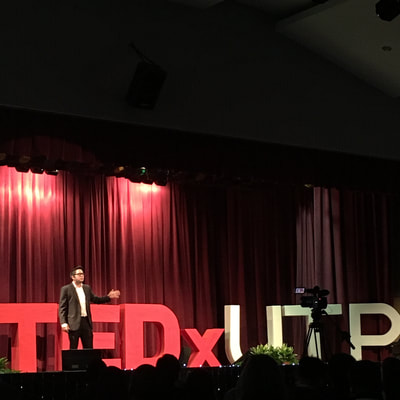
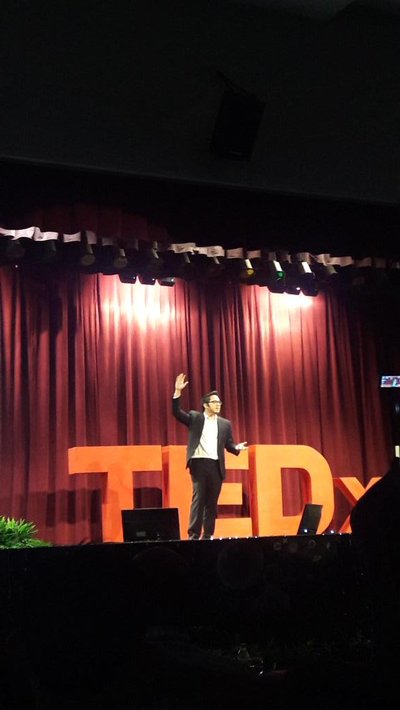
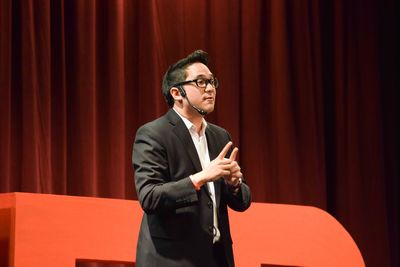
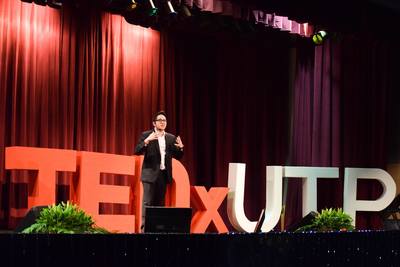
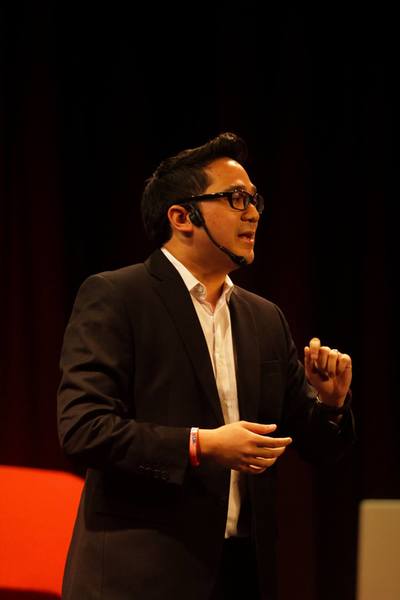
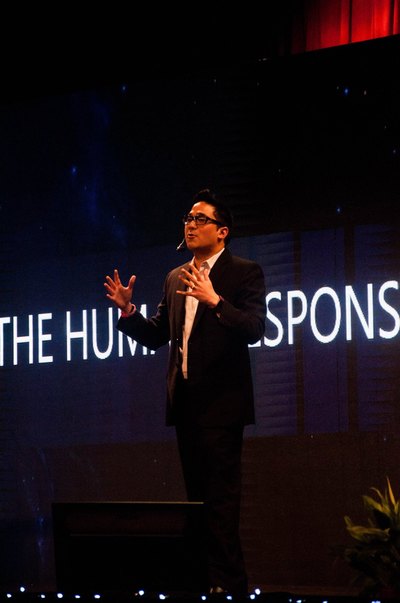
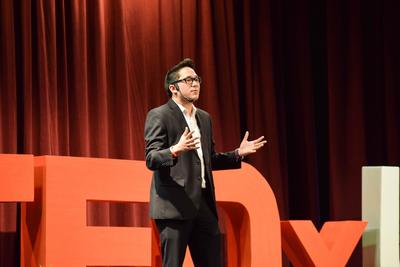
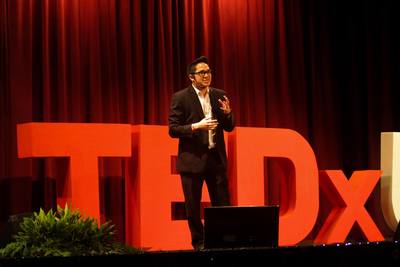
 RSS Feed
RSS Feed
